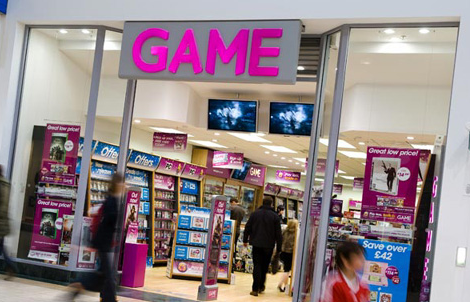 On Monday, the bricks and mortar retail chain Game officially went into administration, ending 20 years in the gaming retail business. The administrator PwC immediately closed almost half of the 600 stores resulting in over 2,000 job losses. But how did what was once the dominant force in the industry reach this point? What went wrong? And what can independent retailers learn from this?
On Monday, the bricks and mortar retail chain Game officially went into administration, ending 20 years in the gaming retail business. The administrator PwC immediately closed almost half of the 600 stores resulting in over 2,000 job losses. But how did what was once the dominant force in the industry reach this point? What went wrong? And what can independent retailers learn from this?
There are a number of factors that seemed to have contributed to the demise of Game:
- High street spending decreased
- Competition from online ecomerce and supermarkets increased rapidly with companies such as Tesco, Amazon and EBay selling games at a lower price than Game
Sound familiar? These are issues that all retailers are currently facing. Ok, so there the additional pressure for Game that comes from the gaming industry moving towards a digital, direct-download-to-console format far quicker than previously anticipated but nonetheless there are lessons we all can learn from Game’s demise.
Game failed to innovate, and found themselves stuck in a rut. Unable to price-match competitors on new products, the vast majority of their focus was on pre-owned games. Stock was inconsistent and the shopping environment was unattractive – they were not engaging with their customers.
How the indies can avoid making the same mistakes is deceptively simple. Time and time again it boils down to the same advice: play to your strengths. Local shops have the ability and opportunity to offer something that customers simply can’t get int the big multiples or online.
As Lisa Byfield-Green, an analyst at Planet Retail advises: “You’ve got to give people a reason to come into a store. In the UK, Foyles [the book store] are growing their sales and their store base, but they’re relatively small and they’re able to tailor their stock to their local customers. That’s where the national chains need to re-focus. You have to give local customers what they want. If you do that, there’s always room for specialists.”
Like Foyles, small independent convenience stores are in a position to tailor their stock and their shopping environments to meet customer requirements. So we advise taking what happened to Game as a lesson – to maximise your profits, make sure you are engaging with your customers.



Comments
This article doesn't have any comments yet, be the first!